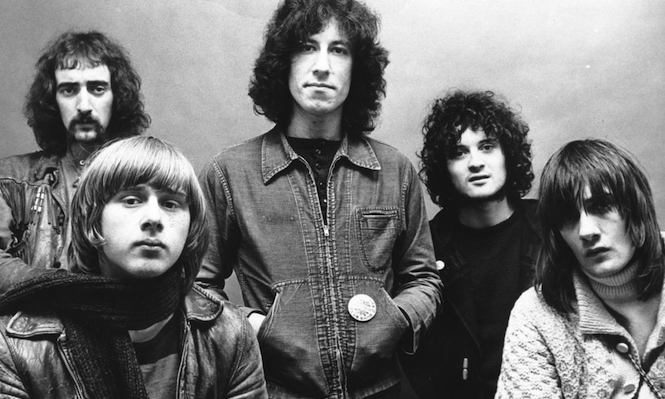

Perhaps I should say Underway, one of the jazzier tracks from the album that mines the same territory as Hendrix’s Third Stone from the Sun from 1967 and Miles Davis’ In A Silent Way, also released in 1969. Then Play On came out in the fall of 1969, a time when the experimentation of progressive rock as well as the complete fragmentation of musical styles we now live with, were just getting underway.

English Rose will probably remain their definitive statement on the blues, though Fleetwood Mac In Chicago sticks closer to the tradition, but their next album would explore places only hinted at before. With this track, and others like Black Magic Woman from English Rose (a US amalgam of the second and third UK albums), the Mac showed that their palette was wider than the standard Chicago blues they so obviously admired.
#Fleetwood mac albums then play on download
The Beatles, who wanted the band signed to Apple but lost out to Warner Bros., paid them the ultimate compliment by nicking the brilliantly atmospheric Albatross (don’t know it? – download immediately) as a basis for Sun King. With Peter Green, graduate of John Mayall's Bluesbreakers, they were quite simply the purest and probably the best British blues band produced by the same scene that gave us Cream and Ten Years After. But in its first incarnation the group was something else entirely. In retrospect, their success was hard won and well deserved, since Mick Fleetwood and John McVie had been busking various versions of Fleetwood Mac since 1967, and the Buckingham/Nicks/Christine McVie starting lineup finally achieved a kind of AOR accessibility, not to mention sophistication that has rarely been matched. In 1977, right before the disco exploded with the release of Saturday Night Fever, the band dominated AM radio with four top ten hits, negating the need for many of us to hear those songs ever again. In the years after, Fleetwood Mac would leave their roots as a blues band and move toward a rock and pop sound.When you think of Fleetwood Mac, which I’m sure you do several times a day, you probably think of Lindsey Buckingham and Stevie Nicks and Rumours and Bill Clinton and reunion tours and enough already. Fleetwood Mac’s album “Then Play On,” set the foundation for how future albums would be written, produced, and performed.
This album identified how the band would change in the near future. version featured an almost nine minute version of the song while the new deluxe version release features the song as it was originally released as a single “Oh Well Part 1,” and “Oh Well Part 2.” Another popular song and single released at the time “Oh Well” was featured on the original U.S album but not the British album. One of those singles, Peter Green’s composition, “The Green Manalishi (With the Two Pronged Crown),” is featured as a bonus track on the deluxe edition. At the time, Fleetwood Mac had released numerous singles that gained the group popularity not only in England but the United States. The United States and British release varied with a different running order and a couple different songs. The newly remastered deluxe edition of the album features the original running order from when the album was released in England. The song was even performed live during the Buckingham/ Nicks era. The song “Oh Well” became a huge hit for the band, that it was continuously performed at concerts year after year. The influence of blues and rock music are emphasized on songs such as “Rattlesnake Shake,” “Searching For Madge,” “Fighting For Madge,” “One Sunny Day,” “Coming Your Way,” and “Show-Biz Blues.” Songs on the album such as “Oh Well” and “Rattlesnake Shake” became staples at concerts and other live performances. “Then Play On” was a sign of what the future had in store for Fleetwood Mac. The track-list of the original album consisted of songs composed by Kirwan and Green. Without Jeremy Spencer’s influence as a songwriter, the group decided to record a number of songs written by newcomer Danny Kirwan. Spencer, who was still a member of the group, did not perform on the album. The album marked a change in the band founder Peter Green would depart the group after the album, and guitarist Danny Kirwan joined the group as tension grew between other guitarists Jeremy Spencer and Peter Green. Originally released in 1969, “Then Play On” was Fleetwood Mac’s third studio album and their debut with what would become a long relationship with the label Warner/Reprise.


 0 kommentar(er)
0 kommentar(er)
